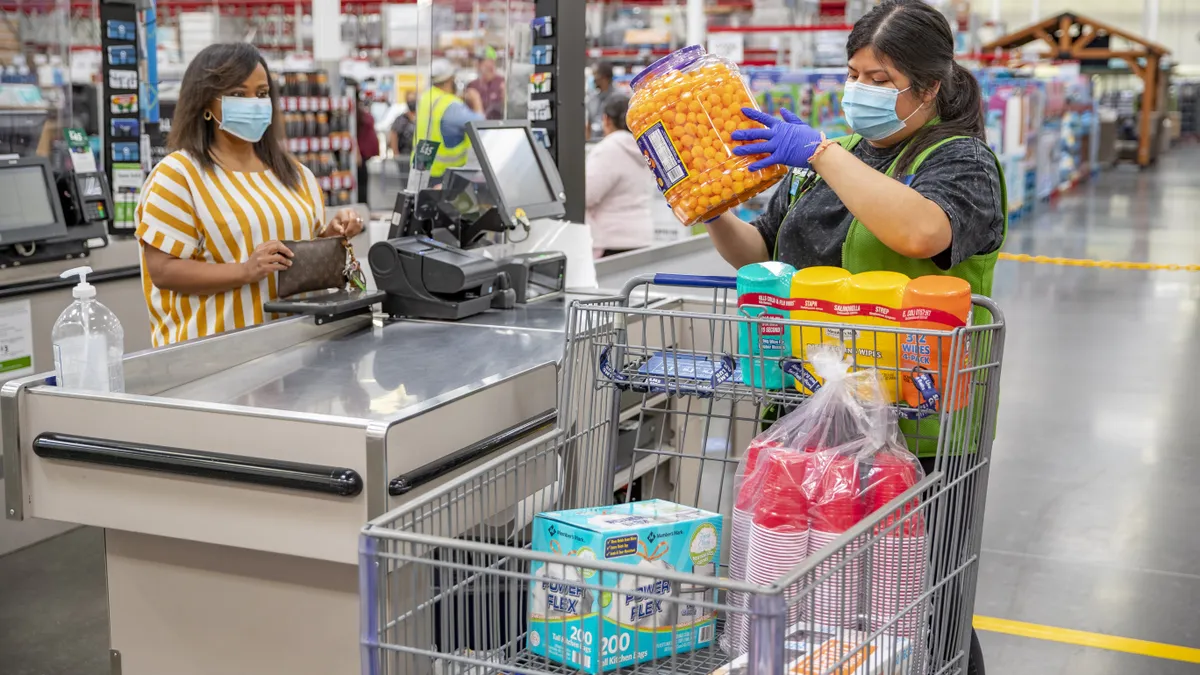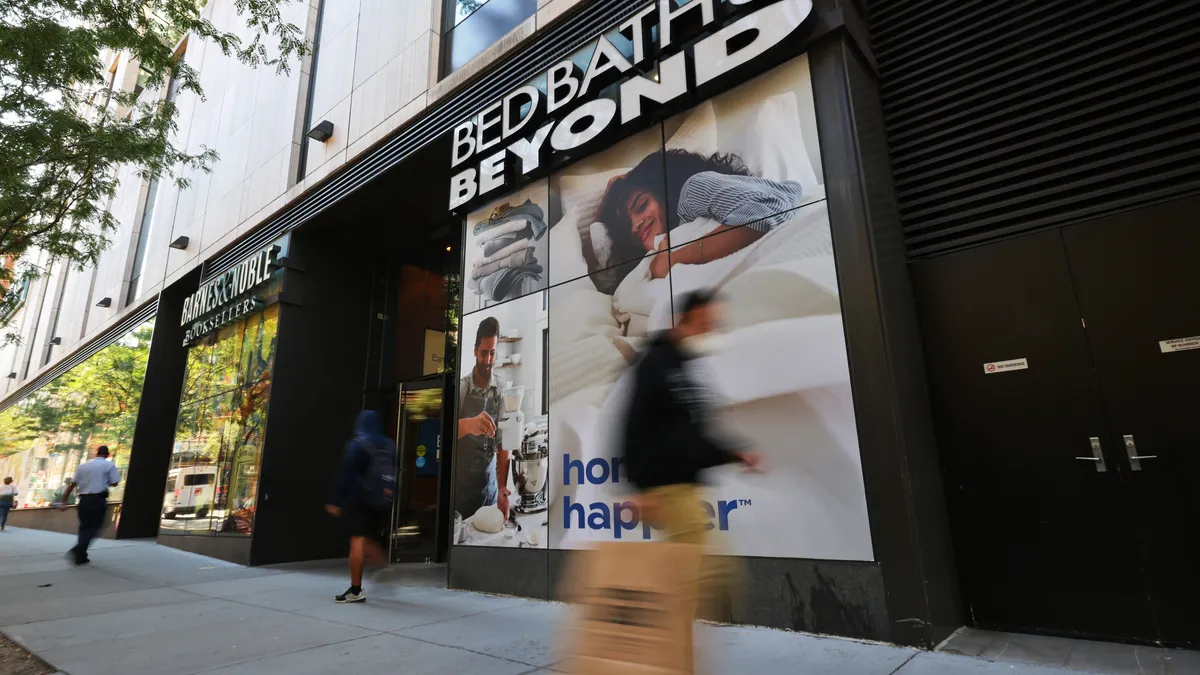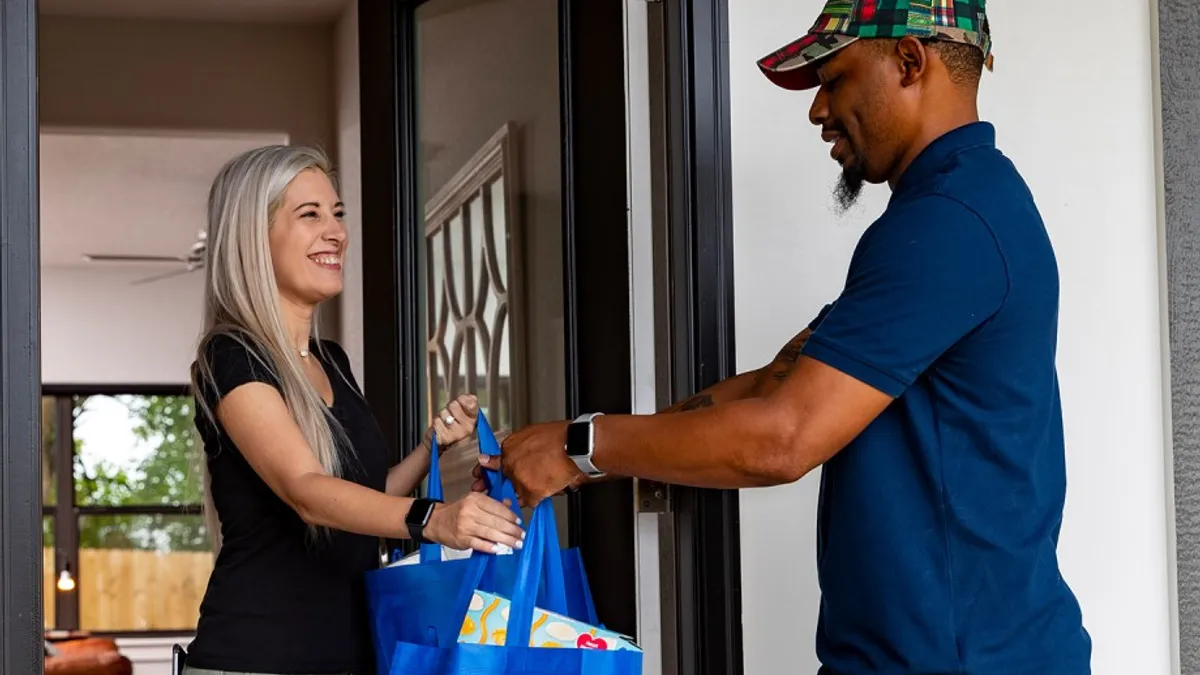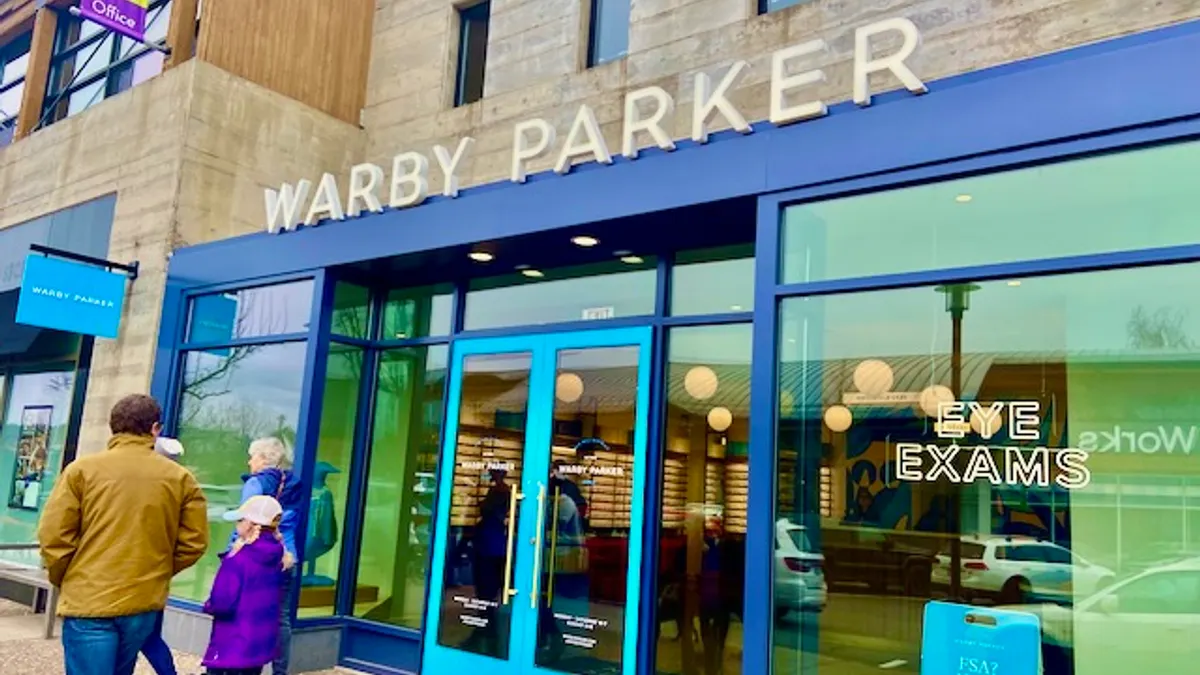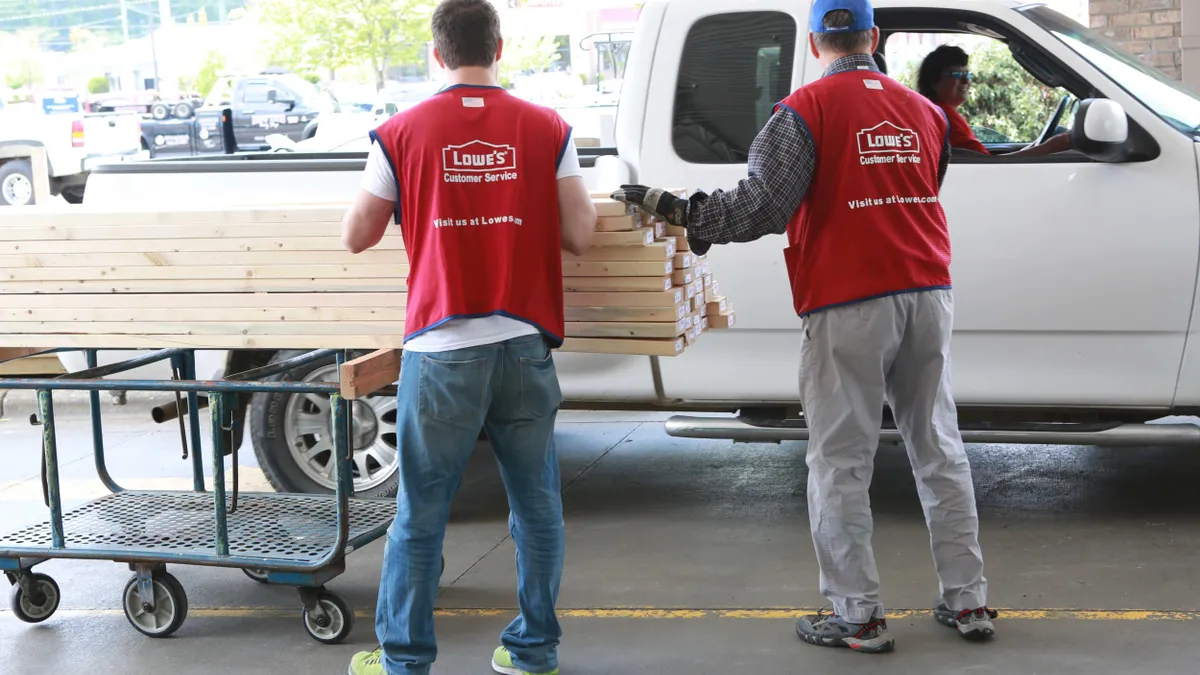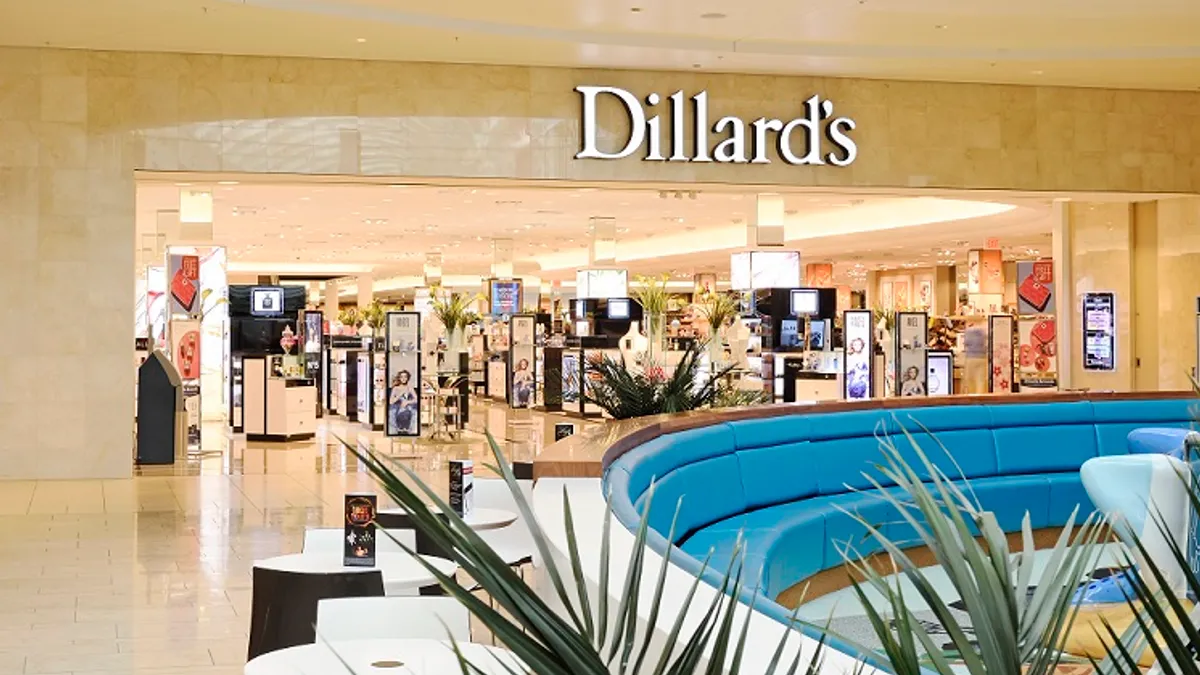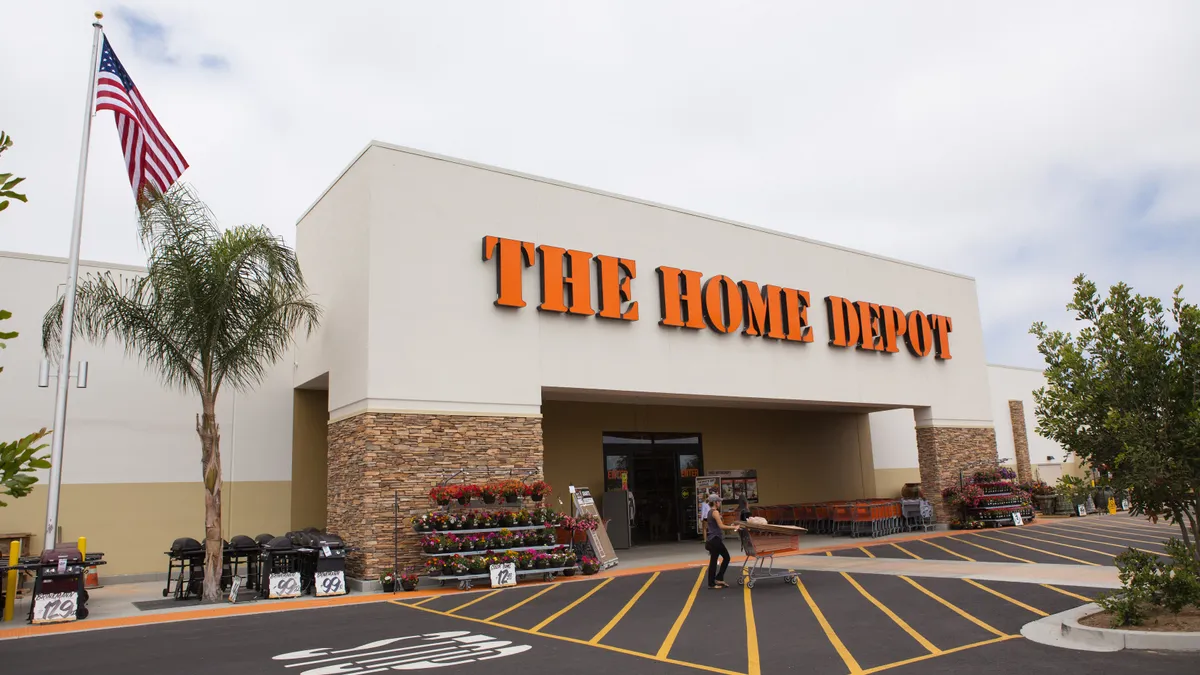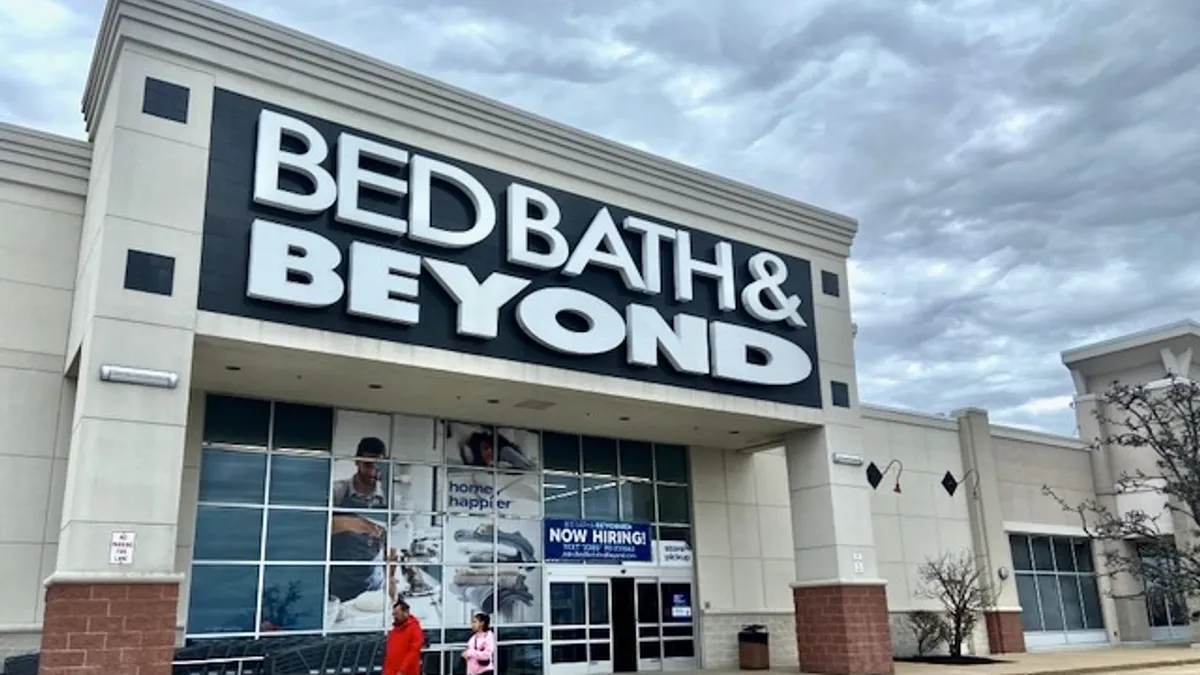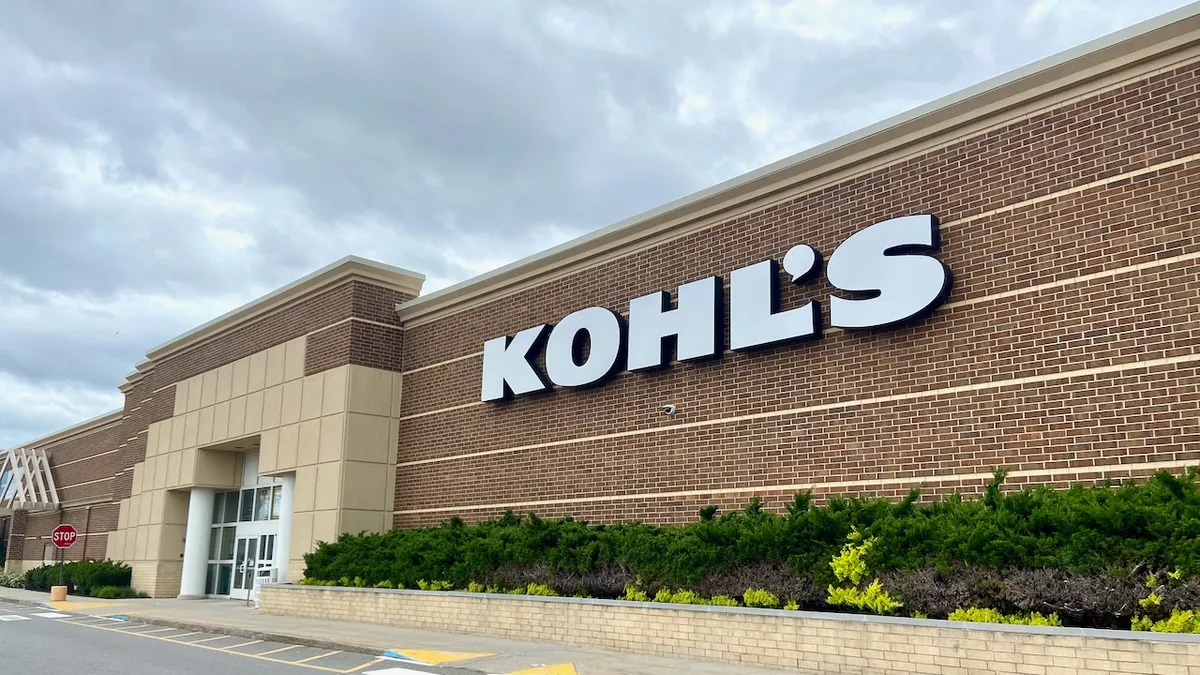With the pandemic ongoing, even intensifying in some areas, retailers find themselves in a position they never signed up for: enforcers of mask wearing for the sake of public health.
But they have good reason to take action, as the trajectory of the disease in the U.S. threatens another shutdown like the one in the spring that decimated retail sales. The situation in recent weeks prompted some stores to reclose shortly after reopening, and the overall rate of COVID-19 cases and hospitalizations has only worsened. By Thursday, the country had reached 3.4 million confirmed cases and 135,807 deaths, according to the World Health Organization.
"Retailers have faced a real balancing act between keeping consumers safe and not alienating those who dislike or are opposed to wearing masks," GlobalData Retail Managing Director Neil Saunders told Retail Dive in an email. "However, a large number now see masks as a necessary health precaution and so have become more decisive in their actions."
Walmart, Best Buy, Kohl's and Target were the latest retailers to get tougher on customers, all saying this week that they will require masks while shopping in their stores. Walmart's new policy, which applies to all its U.S. Walmart and Sam's Club stores, is effective July 20, as is Kohl's. Best Buy's was effective as of July 15. They join Costco, Apple, Starbucks and others in making masks a requirement. Others, like Trader Joe's, continue to characterize them as a "request." Starting Aug. 1, Target customers, except those with underlying medical conditions and children, must wear masks at all stores, and will be given one if they show up without, the mass merchant told Retail Dive in an email. Target is in the process of adding signage and audio reminders to that effect; until then, its policy is reserved for its own workers.
In its reopening guidance, the International Council of Shopping Centers stopped short of recommending mandatory masks for customers. The National Retail Federation on Wednesday, however, urged "all retailers to adopt a nationwide policy that requires customers to wear face coverings or masks to protect the health and well-being of customers, associates and partners during the coronavirus pandemic" and expressed hope that Walmart's decision is "a tipping point in this public health debate."
Nonprofit organization United for Respect hailed the step taken by Walmart in forcing customers to wear masks. The move is vital to protecting employees, the company said in an email Wednesday.
Walmart, the world's largest retailer, said the policy has already been in place at 65% of its more than 5,000 U.S. stores and clubs, in areas with a state or local government mask mandate. Still, it's making some changes to enforce it company-wide. Most notably, the retailer has created a new role of "Health Ambassador," specially trained employees, wearing black polo shirts and stationed at store entrances, who "will work with customers who show up at a store without a face covering to try and find a solution," according to a blog post from Walmart U.S. Chief Operating Officer Dacona Smith and Sam's Club Chief Operating Officer Lance de la Rosa. The stores will also now have just one entrance, to "help ensure consistency with this new process." At Sam's Clubs, members without a mask can get a free one, or buy one.
"While we're certainly not the first business to require face coverings, we know this is a simple step everyone can take for their safety and the safety of others in our facilities," Smith and de la Rosa wrote, citing the CDC in noting that "face coverings help decrease the spread of COVID-19, and because the virus can be spread by people who don't have symptoms and don't know they are infected, it's critically important for everyone to wear a face covering in public and social distance."
Effective but not totally accepted
Medical and pandemic experts have told Retail Dive that shopping in a store can be safe, provided that all customers and employees wear masks, keep their distance from each other, and keep hands and surfaces clean.
Beyond the medical science, research shows that consumers are also more likely to shop at a store where everyone is wearing masks. That's important at a time when, according to GlobalData Retail research emailed to Retail Dive, consumer discomfort around shopping at stores is on the rise again in recent weeks, after easing in late April and May.
More than 60% of consumers surveyed by customer and employee experience management firm Service Management Group said they felt unsafe in a store because of other customers, with 27% saying that was due to fellow shoppers not wearing masks, according to research emailed to Retail Dive. Nearly a quarter of those said they won't go back to stores where they feel unsafe, SMG found.
Moreover, most people say they are willing to put one on. In a recent survey, 71% of consumers told the ICSC that they "wear personal protective equipment like masks when going out." Despite such widespread acceptance of mask use, research indicating its effectiveness in preventing contagion, and its relative simplicity and low cost, the practice has become a divisive issue. Criticism of Walmart's new directive was rampant on social media when it was announced Wednesday, though many also applauded the move. The retail giant seemed to anticipate some resistance.
"We know some people have differing opinions on this topic," Smith and de la Rosa said, again citing the CDC and appealing to shoppers to help the company protect its employees, communities and customers. For those who say they're unable to wear a mask, "associates will be trained on those exceptions to help reduce friction for the shopper and make the process as easy as possible for everyone," they said.
For those who show up without a mask, they said they "are currently considering different solutions for customers when this requirement takes effect on July 20," but didn't elaborate.
Still, that puts workers, including those inside the store, on the spot, Saunders said. "There have already been some ugly conflicts and we can expect to see even more if mandates become more widespread," he said. "There may be a need for increased security in some shops. There will also need to be very clear communication and training for staff to let them know what is expected and what the policies are for handling difficult customers who disobey orders."
Tensions have run high in some cases, and confrontations over masks have turned violent at some stores and restaurants across the country over the issue, according to Kaiser Health.
Enforcing a mask requirement in this environment, therefore, requires special training, according to Andre Simons, a director of crisis and security practice at global risk consultancy Control Risks. "When you're talking about any supercharged partisan issues, it's going to create natural flashpoints," he told Retail Dive in an interview, adding that the pandemic more generally has stressed most people out for weeks, even months. "People who don't want to wear masks will be visiting a place that wants to enforce it."
A Walmart spokesperson told Retail Dive that the Health Ambassadors will be well versed in de-escalation tactics.
Having clear and ample signage regarding the policy and the reasons for it, which Walmart noted Wednesday is already prominent at the front of its stores, can serve as reinforcement, Simons said. But de-escalation practices in such moments can work, he said. While the tendency may be to respond to resistant customers with hostility, for example, store associates can remind themselves to not take the conflict personally. "That means not screaming, no sharp tones, instead, soothing discourse, remaining calm," he said. "For retail employees, their voice is oftentimes their greatest tool, using it in a way that hopefully brings the emotionality down."
If there's any threat to safety, security or law enforcement needs to step in, he said. But acknowledging customers' points of view can also go far. "Rather than minimizing and saying 'Just calm down,' realize this is a very personal and existential issue that is fueling this," Simons said. "Say things like 'I can see how important this is to you, I hope you can see how important this is to our employees and other customers.'"
While there have been high-profile conflicts at stores over mask requirements, including at Walmart stores, the retail giant expressed confidence on Wednesday that things will go smoothly. "As we have seen in states and municipalities with mask mandates, virtually everyone either brings a mask or readily complies with the requirement, and we anticipate that to happen in other areas as well," Smith and de la Rosa said.



